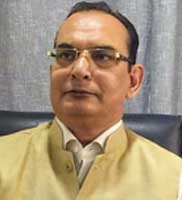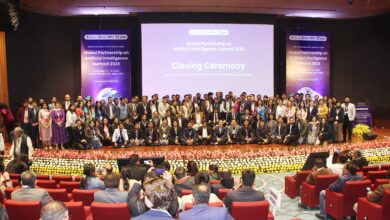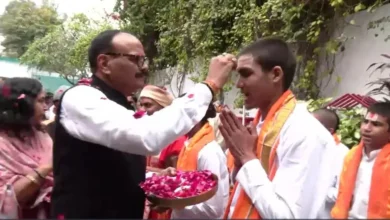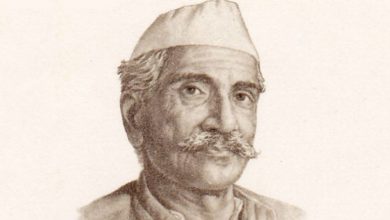UN Diamond Anniversary: A Sombre Celebration
At 75, UN calls for a boost to multilateralism

The 75th UN General Assembly (UNGA) session, which began on 15 September has been unlike any other in the organisation’s three quarters of a century of existence.
This year, most globals leaders will not be at the UN in person and most meetings have gone virtual, due to the ongoing global pandemic, but that’s not to surmise that the wheels of global diplomacy will not be turning at the usual speed.
The United Nations was established in 1945 and will be marking its 75th anniversary on 21 September, with what the UN Secretary-General António Guterres has called an extended ‘people’s debate’ which ‘promises to be the largest and furthest-reaching global conversation ever on building the future we want’.
An event at UN headquarters on 21 September to celebrate the milestone will take place online with an aim to ‘generate renewed support for multilateralism’; an issue many believe has become ever more urgent in the current pandemic era.
On the occasion the UN will be reviewing its commitment to the Sustainable Development Goals, or SDGs – the 17 internationally agreed targets to reduce poverty and maintain peace. In addition it will review the challenges to the global biodeiversity, progress on gender equality and women’s rights besides the ongoing dialogue on multilateralism – beyond expressions of commitment and into a more precise vision.
Gains and Losses during the 75 years
The occasion also gives us an opportunity to make a candid assesment of the achievements and failures of the world body.
Over the decades, the UN has helped to maintain global peace and stability; it has provided humanitarian assistance to millions of people around the world; besides being a key player in global public health; and it has also been at the forefront of the fight against environmental degradation among many other areas. It has helped many countries, particularly in the third world help achieve their social targets. In India it helped to achieve the Polio-free status for the country and currently is also an important stakeholder in ‘Swach Abhiyan’ and ‘Poshan Abhiyan’ programmes of the government besides sectors like the women empowerment, rights of girl child and LGBT issues.
However, the UN itself is also not beyond criticism. Most criticse it due to its bureaucratic-style functioning and more as a talk shop. Recent criticism aginst its proper response to the Rwandan genocide in 1994; ineffectiveness of UN peacekeepers stationed in South Sudan to protect civilians from death, torture and rape; beisdes several sexual abuse allegations at UN peacekeepers in the Republic of Congo, Cambodia, Haiti and other countries abound.
The power imbalance, especially at the level of the Security Council where the five permanent members have the power of veto, also continues to be a matter of contention. Also its ineffectiveness in resolving the Palestininan issue, on which the UN Security Council has adopted 131 resolutions from 1967 to 1989 is proof that this august body has turned into a place for exchanging rhetorics with no real teeth.
The UN is clearly not a perfect organisation and it has suffered its fair share of mission failures. However, in the context of the current politically polarised world with vast economic and social disparities, it is perhaps better placed than many other multilateral bodies to assist in solving our collective problems. Importantly, small developing states rely on the UN to give them a voice and a platform.
Chinese surprise on the occasion
The most surprising move before the start of the celeberations related to UN’s diamond anniversary, was the release of a ‘Position Paper’ by the Chinese Foreign Ministry, expounding China’s position and proposals on various issues, including the UN’s role, the international situation, sustainable development and cooperation on COVID-19 response.
The paper points out that the 75th anniversary of the UN presents important opportunities, and the international community should jointly uphold the outcome of World Anti-Fascist War and reject unilateralism, hegemonism and power politics.
Rather it says, the international community should champion multilateralism, safeguard the purposes and principles of the UN Charter, and defend the UN-centered international system and the international order based on international law. This indeed seems to be a departuare from the usual Chinese attitude, as on many occasions in the past the Chinese stance has been at variance with that of the UN.
It further states that China is ready to work with all countries to build a community with a shared future for humanity, it urges for ‘North-South cooperation as the main channel and South-South cooperation as a supplement’.
China, the second largest global economy, also supported the Debt Service Suspension Initiative for the poorer countries. It further said that the Palestinian issue is at ‘the heart of the Middle East issue’, expressing support to an independent Palestinian state that enjoys full sovereignty on the basis of the 1967 borders and with East Jerusalem as its capital. Beijing also supported the global cease-fire appeal by UN Secretary-General Antonio Guterres. On Afghanistan, Beijing called for talks and a political settlement.
Calling for a ‘new and better blueprint’ for the sake of succeeding generations, China said: “All countries need to look beyond the pandemic and find answers to major questions such as what the world will look like and what kind of UN the world needs.”
“We must reject unilateralism, hegemonism and power politics,” said China, calling for multilateralism and safeguarding the purposes and principles of the UN Charter.
India and the UN
On the occasion of UN’s diamond anniversary, India has scored a hat-trick of election wins at the United Nations. India beat China to win a four-year term on the UN’s Commission on the Status of Women (CWS), a prestigious wing of the world body’s Economic and Social Council (ECOSOC), besides to two other ECOSOC bodies — the Committee for Programme and Coordination (CPC) and the Commission on Population and Development (CPD). Terms will begin in 2021 when India will also start its two-year stint on the UN Security Council as a non-permanent member.
India has always been a strong UN supporter and has always stood for strong and deep engagement with the United Nation.This commitment is based on its steadfast commitment to multilateralism and dialogue as the key for achieving shared goals and addressing common challenges faced by the global community.Efforts related to peace building and peacekeeping, sustainable development, poverty eradication, environment, climate change, terrorism, disarmament, human rights, health and pandemics, migration, cyber security, space and frontier technologies like Artificial Intelligence besides comprehensive reform of the United Nations, including the reform of the Security Council, among others have always been supported by India at the UN.
In sum, we can’t just reject a body present in so many countries and also influential to some extent at one go. Going forward, we’ll have to continue to hold the UN accountable in the style of execution of its mandate. However, more importantly, we must hold world leaders to account because ultimately, the UN cannot function effectively without the political backing and funding of its members. The recent anti-UN stance adopted by states such as the US, is bound to result in the world becoming unipolar and poorer countries being sidelined while making decisions regarding their welfare or any other international issue. Every country in the world should share the sentiments expresed by the UN Secretary General and commit itself to promoting multilateralism.
Asad Mirza is a commentator based in New Delhi.
He was also associated with BBC Urdu Service and Khaleej Times of Dubai.
He writes on Muslims, educational, international affairs, interfaith and current affairs.
Email: asad.mirza.nd@gmail.com





